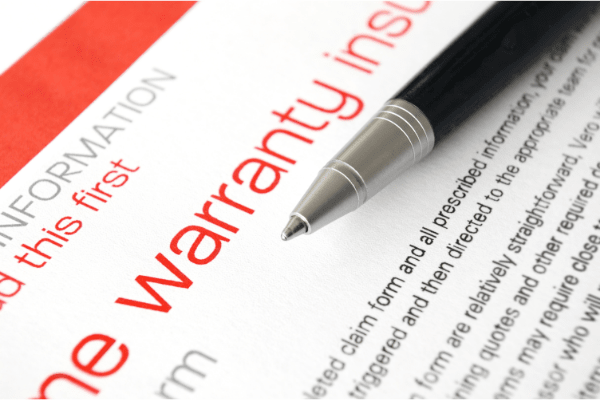Proper trucking authority insurance is an essential part of any trucking company’s legal protection, and it can save you plenty of money and time if you’re ever involved in an accident or receive another sort of lawsuit. But what exactly does trucking authority insurance cover?
Read on to learn more about the different types of trucking authority insurance and how they protect your business.
What Is Trucking Authority Insurance?
Before purchasing a commercial vehicle, you’ll need to ensure that your insurance covers everything your business requires. General liability insurance is a must-have and will cover bodily injury, property damage, and medical expenses. Some states require additional permits for trucking companies; check with your local DMV for specifics.
Your insurance agent can help you determine what kind of coverage you’ll need based on your individual needs and industry regulations. Another popular option to look into for small fleets is a non-trucking liability.
Whereas regular liability protects against accidents involving vehicles, non-trucking liability covers third parties injured on premises other than those owned by owners/operators of vehicles involved in accidents.

Often called umbrella insurance or covering other risks outside transportation, NTL extends protection against various incidents such as falling objects or falling glass caused by weather damage to insured property, such as employee injury within an office building rented/owned by a company having such insurance. Coverage may vary per each incident policy.
Legal Protection
First and foremost, you need a primary liability policy. This covers your most basic legal responsibilities if an accident occurs. The amount you’re required to purchase depends on several factors, but a good rule of thumb is that it should be at least twice your most recent tax return. Your insurance agent can help you determine your needs based on your truck’s weight capacity and how much cargo you plan on carrying in its trailer. You also want to make sure you have general liability coverage, which is included in most primary policies and offers protection from damage or injury caused by accident involving anyone who isn’t directly involved with your company—for example, customers or bystanders caught up in a fender bender between two of your trucks.
The Key Functions of Permits
The next thing that you need is a license or permit. This may seem easy, but there are many different types of licenses and permits in most states. The most common are SFR (single trip freight) or DOT (Department of Transportation). You will probably want both of these when you start. The only other one that you might need is Hazmat if you have hazardous cargo. Each state has different laws about what kind of permit or license they require, so you will have to check with your state’s licensing agency for more information. Some states don’t even require permits as long as you aren’t carrying large amounts of goods. As always, make sure that you read through everything before making any significant decisions! As soon as you feel confident about going into business, talk to a lawyer specializing in trucking law. They can help guide you towards obtaining proper insurance and ensure all necessary paperwork is filled out correctly. Your main goal should be keeping yourself protected from lawsuits! Having an attorney on-call can give you peace of mind knowing that someone else knows how it works better than you do. Of course, don’t expect it to be free!
Many lawyers who specialize in trucking insurance have low-cost consultations to answer any questions that may arise from starting your own company. If you’re interested in increasing your potential for corporate growth or considering other types of transport, you may also want to consider buying specialized coverage for transporting hazardous materials. In addition to outlining what these policies cover expenses, they often require a host of certifications depending on where and how freight is transported.
For instance, if you haul goods across state lines, certification under federal regulations may be required; transporting goods overseas may require additional documentation before importing them into another country. Hiring a qualified broker experienced in navigating these requirements can save time and avoid potentially serious complications later down the road when working with customs officials abroad when they catch wind of gaps in the paperwork filed with U.S. authorities.
How Many Types Of Licenses And Permits Are There?
Drivers of commercial vehicles are licensed through different agencies based on several factors, including their type of vehicle and transport. There are two general types of licenses for drivers: commercial driver’s rights (CDL) and non-commercial driver’s licenses. For example, a construction company that needs to transport its materials will need to apply for a CDL with that state’s Department of Motor Vehicles. A farmer who transports his livestock across state lines would also need a CDL. If you aren’t hauling freight for money or goods, you may only need a license or permit from your state DMV if your vehicle is gross weight. Otherwise, you should contact your local office to find out which license you need.
Where Can I Get Additional Information On Commercial Vehicle Licensing?
Many states provide licensing and permitting information for both carriers and drivers on their Commercial Vehicle Services webpages. For example, New Jersey’s page also has links to other state agencies with similar information. The Federal Motor Carrier Safety Administration (FMCSA) is another excellent resource for trucking authority insurance, along with several different topics, including hours-of-service regulations, vehicle maintenance logs, and more. Finally, your carrier or a broker should have contact information for agents who can offer additional guidance regarding trucking authority insurance policies in your area.
Talk To a Licensed Agent: Once you’ve read up on truck licensing requirements from different authorities in your state or region, consult with an agent who specializes in commercial insurance coverage for truckers.
